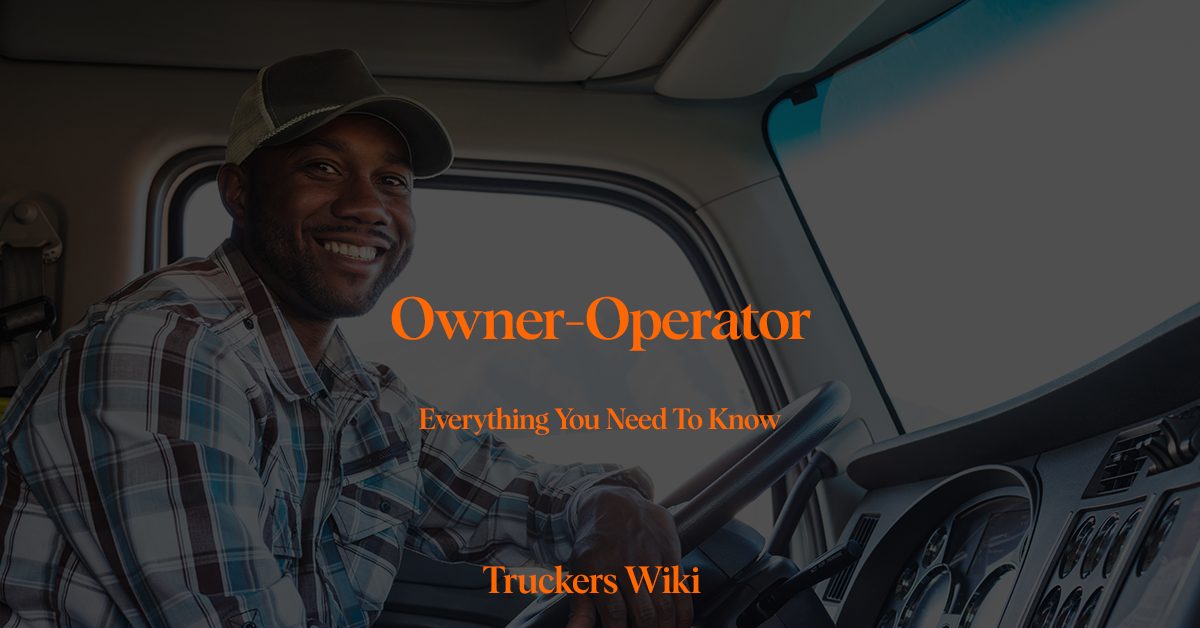
Table of Contents
Who is the Owner-Operator
An owner-operator is usually a self-employed individual who owns and operates their own truck and trucking business. Owner-operators can work independently, picking and choosing their loads, or they can lease their services to a larger trucking company.
Owner-operators can operate in various segments of the trucking industry, including long-haul, regional, or local trucking, and may specialize in specific types of loads.
Responsibilities of an Owner-Operator
Being an owner-operator involves much more than just driving. They are business owners who must handle all aspects of their business, including:
Securing Work: Owner-operators are responsible for finding and securing contracts for the transport of goods unless they are working with a larger trucking company. This often involves negotiating rates and terms.
Maintenance and Repairs: Since they own their trucks, owner-operators are responsible for regular maintenance and repairs to ensure their vehicle remains in good working order.
Regulatory Compliance: Like company drivers, owner-operators must comply with all relevant federal, state, and local laws and regulations. Additionally, they must manage all necessary licenses, permits, and insurance.
Bookkeeping and Administration: As business owners, owner-operators handle their own record-keeping, taxes, and other administrative tasks.
Benefits of Being an Owner-Operator
Being an owner-operator can have several benefits:
Independence: They have greater control over their business. They can choose which loads to take, negotiate their rates, and set their own schedules.
Earning Potential: While their costs are higher, successful owner-operators often have the potential to earn more than company drivers because they’re able to keep a larger share of the profits.
Pride of Ownership: There’s a sense of pride and satisfaction in owning your own business and maintaining your own equipment.
Challenges of Being an Owner-Op
Despite the potential advantages, there are also significant challenges that come with being an owner-operator:
Financial Risk: Owner-operators bear the financial risk of their business, including the costs of maintaining their trucks, fuel expenses, insurance, and fluctuating market rates.
Irregular Income: Unlike company drivers who have a steady paycheck, the income of owner-operators can be unpredictable and may vary depending on the available loads, rates, and operating costs.
Administrative Burden: Handling the business side of being an owner-operator, such as bookkeeping, taxes, and securing contracts, can be time-consuming and complex.
Do you need Authority, MC and DOT Number to be an Owner-Operator?
An owner-operator in the trucking industry can operate under two distinct models: working independently under their own authority, or leasing their truck to a trucking company.
If an owner-operator opts to operate independently, having their own Operating Authority (commonly referred to as an MC or Motor Carrier number) is a mandatory requirement set by the Federal Motor Carrier Safety Administration (FMCSA) for engaging in interstate commerce. It’s also necessary for transporting regulated commodities for hire across state lines. Having an MC number, along with a Department of Transportation (DOT) number, not only ensures compliance with safety regulations but also contributes to building a reputation as a reliable trucking service provider.
On the other hand, an owner-operator can choose to lease their services and their truck to a trucking company. In this case, they are essentially working under the trucking company’s authority and MC number. This approach can simplify administrative tasks such as regulatory compliance, securing loads, and invoicing. However, even under this arrangement, owner-operators would still need a DOT number if they own their truck.
Both pathways come with their own sets of advantages and responsibilities, and the choice between the two often depends on individual business goals and personal preferences. Regardless, having an MC number, whether it’s personally held or through a trucking company, boosts an owner-operator’s legitimacy and may open more business opportunities. Therefore, while not always legally necessary depending on the chosen model, securing an MC number can be beneficial in various ways.
The Bottom Line
Owner-operators are the entrepreneurs of the trucking industry, owning their own business, and enjoying the freedom and flexibility that come with it. They play a vital role in the transportation and logistics sector, contributing to the efficient movement of goods across the country. Despite the challenges, many find the rewards of being an owner-operator to be worth the effort, driving the industry forward one mile at a time.
ET Transport has a great video on whether Should you become a owner-operator in 2023.

